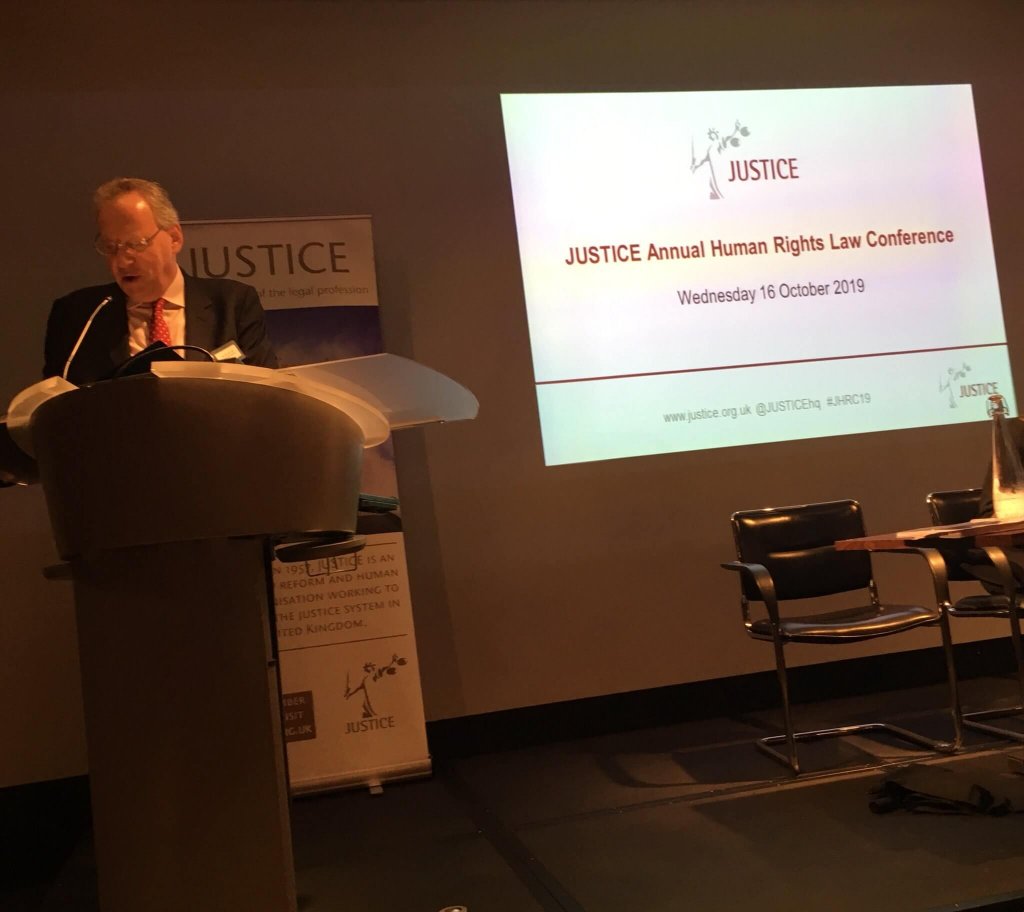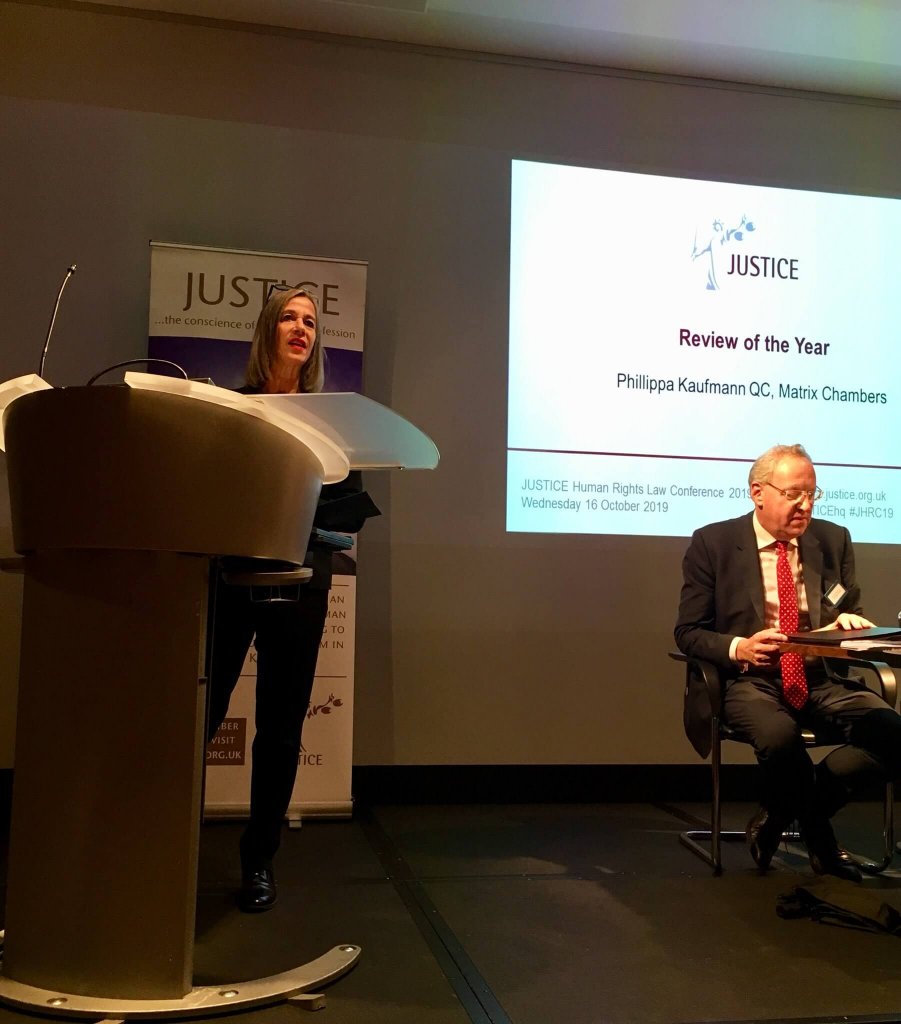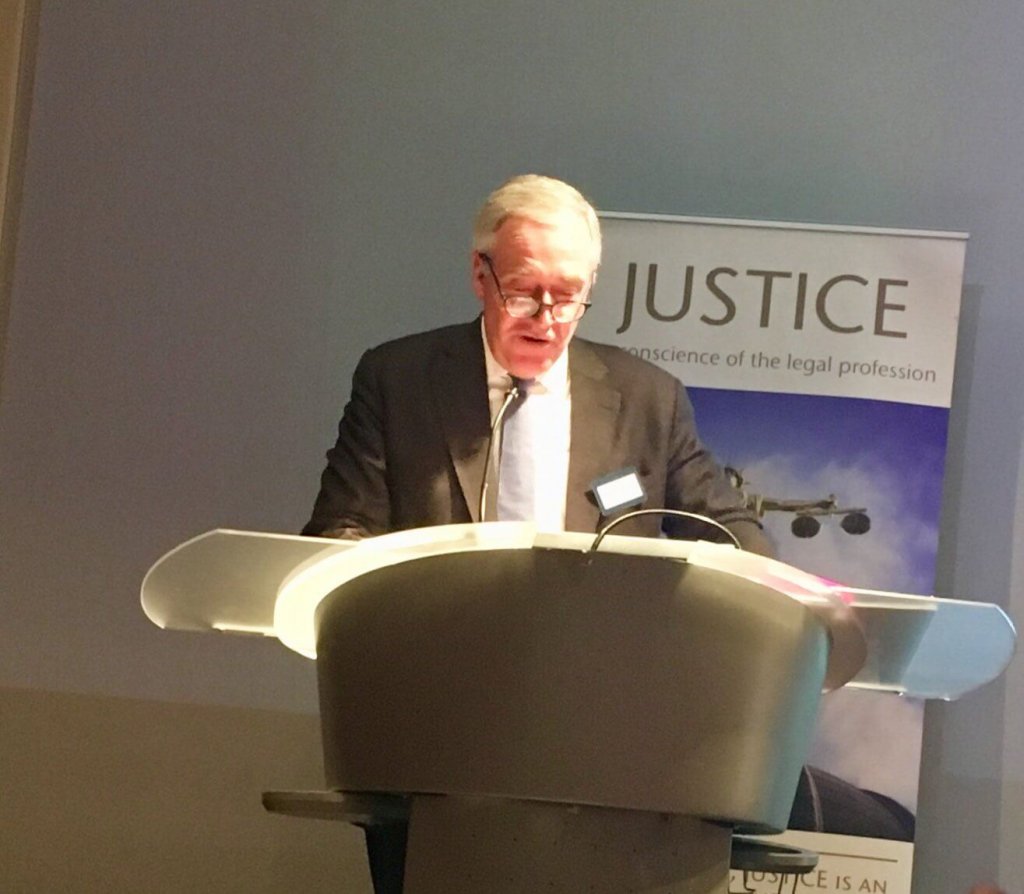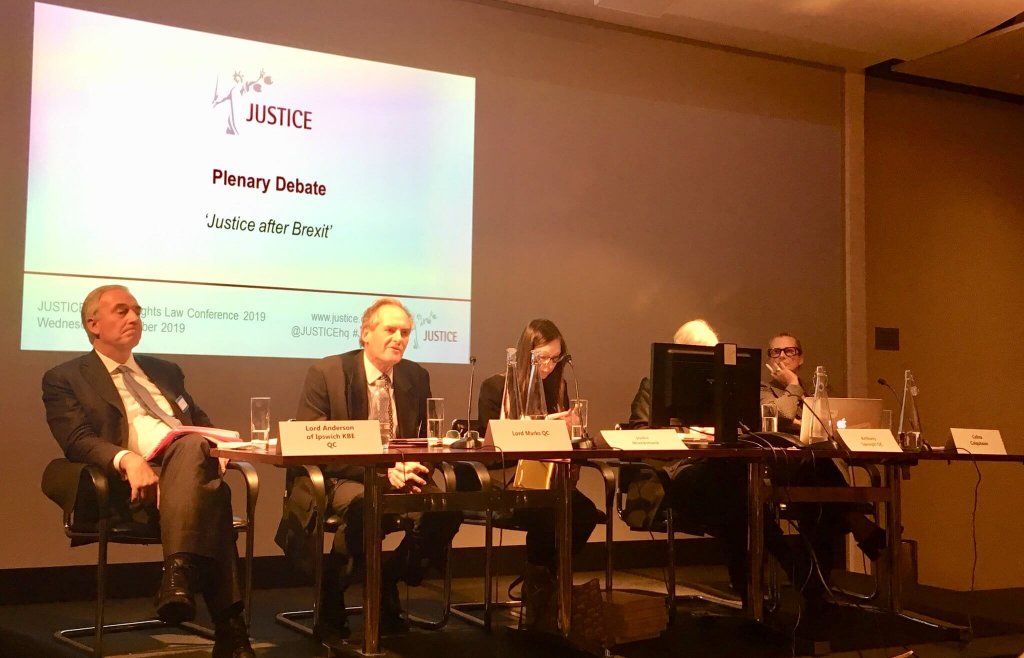On Wednesday 16 October our annual Human Rights Law Conference took place at Freshfields Bruckhaus Deringer. This year, we hosted discussions on a number of topics including free movement, air pollution, rape prosecutions, Brexit, judicial diversity and public inquiries.

The conference opened with a morning Keynote Address, delivered by the Rt. Hon. Sir Nicholas Green, Chair of the Law Commission. Sir Nicholas’ address was on the issue of “accountability.” This is a topical issue considering the Supreme Court case of Miller, which addressed the power to hold the Executive to account. Sir Nicholas’ focus, however, was on accountability as a forensic optic through which we should view human rights and the function of the courts as guardians of such rights, i.e. accountability as between individuals and the state.
Sir Nicholas said that there are four essential pre-conditions for courts to ensure accountability. The courts must be accessible, potent and inspire public confidence. The fourth condition is that each of these three prior conditions must also be effective. Sir Nicholas described these conditions as “umbrellas” for many other different principles and proceeded to lay the elements of each one out in detail.
Following this, Sir Nicholas identified several substantive issues which the courts are increasingly having to grapple with. Key among these is the increased use of technology. Algorithmic decision making, for instance, now spans areas from social security through to immigration. There are benefits from this, but the use of artificial intelligence also poses risks, arising for example through reliance on skewed or biased data.
Sir Nicholas concluded by identifying what he saw as ten key legal issues for the future. He said (1) accountability will increasingly be recognised as a core principle, (2) there will be a merging of human and fundamental rights, (3) fewer issues will be deemed non-justiciable, (4) digitisation will mean the core principles of legal certainty, openness and transparency will grow in importance, (5) the common law will play an enhanced role in protecting rights, (6) the systems operated by the state will come under increasing challenge, (7) the courts will entrench the principle that human rights must be enforced “effectively,” (8) the proportionality test will evolve and the courts will settle upon a new single test for evaluating human and fundamental rights, (9) courts will have to become more flexible in order to account for the digital world, and (10) the courts will continue to be called upon the adjudicate on political issues and must not shirk that responsibility.

Phillippa Kaufmann QC gave this year’s Review of the Year. She looked at cases that made determinations on the topic of proportionality and the use of safeguards in order to provide for various rights. The key case this year is Gallagher v Secretary of State for the Home Department. The case raised an issue in respect of judicial reasoning and the test used to allow for discretion in the decision-making processes of the court. A proportionality test would normally allow for some measure of discretion to be engaged, while a strict legality test does not involve questions of degree and would rule out any use of discretion. The European Court of Human Rights, however, had stated that safeguards could form part of the legality test in cases where a discretionary power would otherwise be unconstrained. In this respect it was inconsistent for the court in Gallagher to state that the legality test could leave no room for the use of discretion.
In respect of several cases relating to a cap on benefits, Phillippa pointed out a line of judicial reasoning which suggested that the power of the court to rule on issues of social policy was very limited. She also drew attention to a series of Article 5 (Right to Liberty and Security) cases in which the principle of legality – a restrictive test – was engaged by the courts, resulting in fundamental rights being undermined and interfered with.
The day’s Workshops featured a line-up of impressive speakers on a range of topics. In the morning these were on Criminal Justice and Human Rights, Judicial Review and Women’s Human Rights. The afternoon sessions covered Immigration, Asylum and Human Rights, Environment and Human Rights and Inquests and Inquiries.

The Afternoon Keynote address was delivered by Lord Anderson of Ipswich KBE QC and was the perfect blend of information, insight and humour, captivating the audience in his take on the rights of UK and EU citizens post-Brexit. He characterised Brexit as amounting to a thicket of new red tape, in which issues of terrorism security, wider national and international security, the flow of data across frontiers and the protection democracy will become ever more pressing. He stressed the importance of judicial independence throughout and after the Brexit process and raised questions over the need to codify a constitution.
The JUSTICE Human Rights Law Conference concluded with the plenary debate session – ‘Justice after Brexit’ – which featured Lord Anderson of Ipswich KBE QC, Lord Marks QC (Liberal Democrats), Anthony Speaight QC (Conservative Party), Celina Colquhoun (No5 Barristers’ Chambers) and was chaired by JUSTICE Legal Director Jodie Blackstock.
Following the keynote address, Lord Marks QC spoke critically about the issue of free movement and the EU Settlement Scheme, asserting that those who comply with the need to move back to the EU will suffer greatly, as those who choose to ignore the rules will not be effectively deported.

Anthony Speight QC addressed the topic of “acquired rights”, putting forward that the months remaining should be used to join the European free Trade Association EFTA and, whilst also accepting its controversiality, proposed the need for a UK Bill of Rights to be looked at again.
Celina Colquhoun focused on the importance of environmental protection, contending that climate change can be argued as the biggest human right. With the Government’s introduction of the Environment Bill, which will in turn establish The Office for Environmental Protection, she raised concerns over its ability to ensure accountability as effectively as the EU Commission has.
All speakers delivered an optimistic but critical eye to rights post-Brexit, each offering their own differing take on what will be the key issues in the forthcoming months and years.
Thank you to everyone who made this year’s conference possible, particularly the speakers and Freshfields Bruckhaus Deringer for hosting us for another year.
There is more coverage of the conference on Twitter under #JHRC19
The full JUSTICE Human Rights Law Conference programme can be seen here (pdf)
